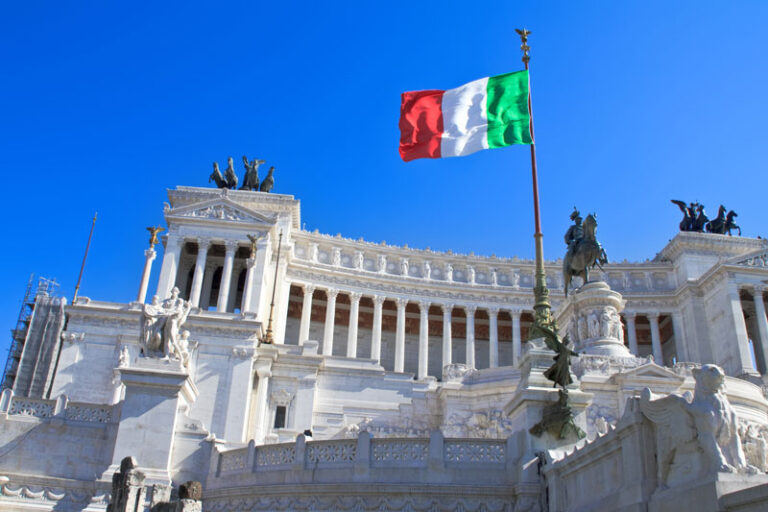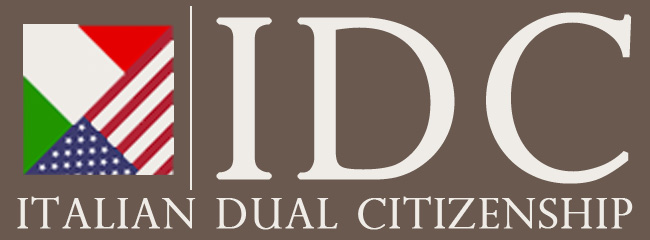
Citizenship by descent, also known as Jure Sanguinis (through the bloodline), gives you an opportunity to apply for Italian citizenship if you qualify, whether you live in Italy or abroad. During the application process, there are several costs and fees you’ll need to be aware of.
Here is what to expect:
First Steps
The first thing you need to do to petition for Jure Sanguinis citizenship is to gather all of the documents you’ll need to fill out or and present throughout the process. Most of these documents will have application, copying, or renewal fees attached, so it’s essential to start saving up early in preparation of the costs.
Keep in mind that a lot of these costs will vary depending on your local regulations and policies, so you should seek your nearby consulate to get more specifics about the fees that pertain to your particular area. You can also reach out to us to get a detailed estimate of your costs before starting the citizenship process.
Below, the list of prices is provided at a fixed date depending on the most recent costs at the time of this article being published. We are only able to talk about costs with these types of documents since some fees can vary widely from place to place and will be dependent on your particular case and what needs to be done to meet the requirements of your local Italian consulate.
For example, apostille documents can actually be cheaper in less populated states of the United States than they are in New York or California, the most expensive states in the USA. This means that some of the costs are not fixed and will be different depending on where you live and which consular jurisdiction you fall under based on your legal residence.
Let’s take a closer look about what Jure Sanguinis is, and what documents you need to apply for and get Italian citizenship through descent.
About Jure Sanguinis
Jure Sanguinis describes citizenship by descent or by blood. If you are not necessarily born in Italy, but you are the child of Italian ancestors, you may qualify to apply for citizenship in a much different way than if you had no Italian bloodlines.
If you live in Italy, you can apply for citizenship Jure Sanguinis just about anywhere. If you live abroad, you will be legally obligated to apply at your local Italian consulate depending on how you qualify and what path is necessary for you to take. This is where some of the cost differences begin; depending on whether you are inside or outside of Italy, you will undoubtedly see different prices.
Documents and Costs
Depending on where you are petitioning from, your costs and fees will vary. Below is a list of the four primary documents you’ll need and whether there are fees associated with them.
1. Documents highlighting all major life events for every member of your family with direct Italian lineage. This is the paper trail that connects you to your Italian ancestorys, so the person who will be processing your documentation can submit the required documents as proof that you are indeed able to file citizenship under Jure Sanguinis.
Prices for all of these documents vary widely, depending on your issuing authority.
You can trace lineage back to a great-grandparent since that counts as a direct lineage in the third degree. Here is a basic example of what submitted documents in a case like this could look like:
Great-Grandparent – Third Degree
- Birth Certificate – You would need this authentic birth document directly from Italy, as it shows that your ancestor was indeed born in Italy. If you cannot find a birth certificate or you are unable to get a record of it, you may be able to use a baptismal record, which is recognized in some cases. Costs will vary.
- Naturalization Papers – If your great-grandparent immigrated to another country and became naturalized there, you need those papers. It may not seem relevant, but it is one of the most important documents you will need to prove your lineage back to Italy and that you fall within the Italian dates and laws. Naturalization records usually cost $65 from the USCIS Genealogy Program. If they are coming from State Archives or local areas, the price may differ.
- Marriage Certificate – If your great-grandparent did not stay married, you also need to provide a decree of divorce. Since marriage certificates can be issued from many different authorities, costs for a marriage certificate can range from $2 to $40.
- Death Certificate – If applicable (if your great-grandparent is no longer alive), you will need to provide this document as well. Costs vary depending on issuing authority but can range from $8 to $35.
In addition to the documents listed above, you may also need to purchase an apostille stamp for each document that is not coming directly from Italy, and possibly translation fees if the documents are not in Italian as nearly all documents will need to be translated to Italian. Costs of apostille stamps can range between $1 and $40.
Grandparent – Second Degree
- Birth Certificate – Just like the documents for your great-grandparent, you need to provide a birth certificate. Prices can vary between $8 and $35, depending on issuing authority. A baptismal record may be accepted instead of a birth certificate.
- Marriage Certificate – If applicable, you need to provide this as well as a decree of divorce if applicable. Costs vary between $2 and $40 depending on issuing authority.
- Death Certificate – If applicable, and your grandparent has died, you will need to present this certificate. Prices range between $8 and $35 depending on issuing authority.
You will also need to provide apostille stamps for the above documents if they are not originally issued from Italy.
Parent – First Degree
- Birth Certificate – You need to have your parent’s birth certificate to serve as a direct link between you and your lineage. A baptismal record may be accepted if you cannot find any record of your parent’s birth certificate. Prices range between $8 and $35, depending on where you get it.
- Marriage Certificate – In addition to a decree of divorce, if applicable, you can get this from local authorities. Prices range from $2 to $40.
- Death Certificate – If applicable. If you need one, prices range from $8 to $35, depending on issuing authority.
It may be possible that you need apostille certifications for these documents if they are not coming from within Italy. Expect to pay between $1 and $40 for apostille stamps.
Yourself
- Birth Certificate – You should have a certified copy of your birth certificate, or you should be able to acquire it from the local region in which you were born. Prices can vary from $8 to $35 depending on issuing authority.
- Marriage Certificate – If you are married, you need a copy of this certificate from your local issuing authorities. Make sure to include a decree of divorce as well, if applicable. The cost can vary between $2 and $40.
If any of these documents are coming from outside of Italy (which is likely considering you are applying under Jure Sanguinis), you will need to attach apostille stamps or certifications.
In addition to the example documentation listed above, you should also keep the following in mind:
- Your local Italian consulate may ask you to provide birth and death certificates for relatives who are not directly in your lineage, such as spouses of direct ancestors.
- Ancestors that you are directly linked to who may have changed their names legally, you need to show this documentation stating proof of name change. This is required for yourself as well if you have changed your name.
- Any documents coming from a country other than Italy are required to be translated into Italian. There are a few rules that go along with this, including:
- If you are from the United States and all of your documents are only coming from the United States (plus Italy), translations are not required to be certified since the United States application fee covers translation certifications. However, the Washington, D.C. embassy does charge for translation certifications, as does the Boston Consulate.
- If you are in the United States, but you are applying using non-U.S. and non-English documents, you need a certified translation.
- If you are in Italy and making the petition, all of your non-Italian documents need to be translated and certified by the court if they have not already been.
- If you are neither in your country of origin nor Italy, but in another location, and your documents are not in that country’s official language, you will likely need all documents certified translated. For example, a U.S. petitioner living in Germany might need to get all documents translated by the Italian consulate in the original country before they can be submitted to a consulate in Germany
2. Service provider costs:You will have to pay for someone to provide the service of certifying and submitting your documentation for you. These fees can vary depending on your case and your needs, as well as the location from which you are applying. You can work with our team of Italian citizenship professionals at IDC to find out about our services and how we can help you complete all of your necessary documents as efficiently as possible.
3. Processing fees: Processing fees will differ depending on where you are submitting your documents. Processing fees usually cover other costs, such as translation certification and other local document requirements.
The typical processing fee at an Italian consulate costs €300, which can be paid in USD as well. This is payable to the consulate, and the costs can depend on the quarterly exchange rate, which sometimes changes.
If applying directly in Italy, the processing fee is €16 and does not include translation certification. This processing fee is known as a marca da bollo, which is a stamp of revenue, similar to a money order.
There may also be a processing fee associated with whether or not you are living in Italy throughout the process. If you are living in Italy, you will probably have to apply for a visa that permits you to stay for work or student purposes. This will allow you to remain in Italy throughout the whole process. But if you only have a tourist visa, you will not be allowed to stay until you have been officially recognized as an Italian citizen.
The permit to stay, also known as the Permesso di Soggiorno, costs between €100 and €200 depending on the length of residency and urgency of need. You might also have to factor in additional travel costs during this time.
4. All Italian identification papers: This includes documents such as your Italian passport, which costs €116 if applying for one outside of Italy. This is the only type of Italian ID available to any citizen of Italy that is issued by a consulate.
Important notes:
If you are applying within the United States or getting a USA passport, you must pay all of these fees using US dollars, with conversion rates updated every quarter. Visit your local consulate’s websites to see the latest exchange rates.
If you are applying outside of the United States, the consulate may also accept Euros in addition to that country’s local currency if outside of the EU. Again, it’s important to check your local consulate for details.
If you are applying directly in Italy, you need a Carta d’Identita (Identity Card) or a CIE, known as an Electronic Identity Card, before you can apply for a passport.
As soon as you are recognized as a citizen, you can apply for your official Italian identification card. The cost for applying for an ID is €5.42. The paper card will cost €22, while the electronic card will cost €16.19 + €5.16 depending on your commune, + €0.26 secretarial fee.
The official Judicial process, also known as a 1948 case, has all of the same requirements, plus an associated attorney cost in addition to the fees of the judicial proceedings.
As for as the legal proceedings go, the associated fees include:
- Filing fee: €286
- Final judgment costs: €35.87 per copy
- Italian passport consular fee: Varies
Remember, all non-Italian documents need to be translated by an official Italian court if they have not already been certified translated.
Some associations may charge you for translations, which can average to €16 for every 4 pages of translation. An additional €3.87 is needed for a certificate of accuracy.
Do you have more questions about how to acquire Italian citizenship and how to pay for the associated costs? Visit us and consult with an expert before navigating the Italian Court System alone.





